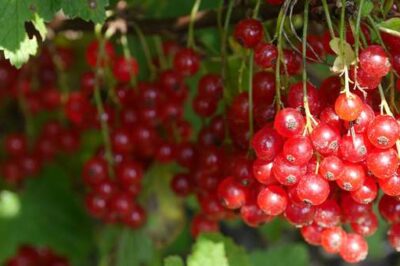I have had numerous emails of late from people worried about oxalates in the juices they drink. Oxalates (or oxalic acid) are naturally occurring compounds in foods like spinach, kale and chard. They are also produced in small amounts in the liver. The role of oxalates is to provide protection for plants—everything from harmful bacteria to insects and animals.
Oxalates are correlated with the formation of the most common type of kidney stones—calcium oxalate stones. These form when oxalates bind with calcium in the bloodstream.
Most people do not need to be concerned about oxalates in the diet. However, if you have a health condition that requires you limit oxalates, then you do need to follow some nutritional guidelines.
Cranberry to the Rescue!
Here’s a suggestion from a study in 2003 that rarely gets mentioned when people discuss oxalates and kidney stones. Cranberry juice has antilithogenic (stops the promotion of calculi) properties and should be used in managing calcium oxalate formation of stones in the urinary track (urolithiasis). So in plain English, what this means is that you should drink some unsweetened cranberry juice in addition to your green juices, berry, celery or beet juice to prevent kidney stones, especially if you are so prone. I like to mix about 1 tablespoon of unsweetened cranberry juice in a glass of purified water or sparkling water. And you’ll get an added bonus; it also acts as a diuretic: ncbi.nlm.nih.gov/pubmed/14616463.
HIGHEST FOODS IN OXALATES
Beans, baked and green, snap, waxed, dried, pod, runner
Beer: Lager draft, Tuborg, Pilsner
Beets: Tops, roots, greens
Blackberries
Blueberries
Bread, whole wheat
Celery
Cheerios (1 cup)
Chocolate
Chocolate Milk
Cinnamon, ground (1 ½ teaspoon or more)
Cocoa
Cocoa powder
Collards
Currants, red
Dandelion greens
Dewberries
Eggplant
Escarole
Fig Newtons
Figs, dried
Fruit cake (1 slice)
Garbanzo beans, canned
Ginger (1 tablespoon)
Gooseberries
Graham crackers
Graham flour
Grapes, concord
Green Tea
Grits, white corn
Juices containing berries high in oxalates
Kale
Kamut
Kiwi
Leeks
Lemon peel
Lime peel
Marmalade
Oatmeal
Okra
Orange peel
Ovaltine
Parsley
Parsnips
Peanut Butter
Peanuts
Pecans
Pepper (in excess of 1 teaspoon per day)
Peppers, green
Pokeweed
Popcorn (Oroville Redenbacher, 4 cups)
Potatoes
Potatoes, sweet
Raspberries, red and black
Rhubarb
Rutabagas
Sesame Seeds
Sorrel
Soy sauce
Soybean crackers
Soybean curd (tofu)
Spelt
Spinach
Squash, yellow and summer
Stone ground flour
Strawberries
Sunflower seeds
Swiss chard
Tangerines
Tea, black and indian
Tomato sauce, canned
Turnip Greens
Watercress
Wheat bran
Wheat germ
Whole wheat flour
Yams
Yellow dock
Here’s what you can do if you’re prone to kidney stones:
1. Increase the amount of calcium in your diet. Not enough calcium in your diet will increase your chances of forming calcium oxalate kidney stones. Many people who are prone to kidney stones are afraid to eat calcium because of the name “calcium oxalate stones.” Calcium binds oxalate in the intestines. A diet rich in calcium helps reduce the amount of oxalate absorbed by your body, therefore, those who wish to avoid stones should increase their consumption of calcium-rich foods. Also, eating high calcium foods at the same time as high oxalate food is helpful; for example, have sesame seeds with a spinach salad. If you take a calcium supplement, calcium citrate is the preferred form.
2. Drink plenty of water each day. It is very important to drink plenty of water. Your goal should be 10-12 glasses of liquids a day. At least 6 glasses should be purified water. You may also want to consider drinking lemon water. Research suggests that lemon and water may be helpful in reducing the risk of calcium oxalate stone formation.
3. Eat the right amount of protein daily. Eating large amounts of protein may increase the risk of kidney stone formation. Your daily protein needs can usually be met with 4 to 6 ounces. Eating more than this, if you are at risk of kidney stones, could present a problem.
4. Reduce the amount of sodium in your diet. Reduce the amount of sodium in your diet to 2-3 grams per day. Limit eating processed foods such as hot dogs, deli meats, sausage, canned products, dry soup mixes, sauerkraut, pickles and fast food
5. Limit the vitamin C content of your diet. Oxalates are produced as an end product of vitamin C (ascorbic acid) metabolism. Large doses of vitamin C may increase the amount of oxalates in your urine, increasing the risk of kidney stone formation. If you are prone to kidney stones, limit your intake to 500 mg of Vitamin C daily.
Today’s Recipe
Cran-Apple Juice
Studies show that cranberries are loaded with acids that researchers believe are useful in dissolving fat deposits. When fat deposits settle in the body, they are hard to get rid of, so it’s best to get them before they get “hooked” on you. Some studies suggest that the enzymes in cranberries can aid metabolism, which can also boost weight loss.
- 1 cup cranberries, fresh or thawed if frozen
- 2 apples
Cut produce to fit your juicer’s feed tube. With the machine on, pour in the berries and top with the plunger to prevent them from flying out. Then turn the machine on and push the berries through, followed by the apples. Stir and pour into a glass. Drink as soon as possible. Serves 1. {eoa}
Cherie Calbom, M.S., holds a Master of Science in whole foods nutrition from Bastyr University. Known as “The Juice Lady” for her work with juicing and health, she is the author of 32 books, including her latest book The Juice Lady’s Guide to Fasting. She and her husband offer juice-cleanse retreats throughout the year, 30-Day Detox online and Garden’s Best Juice Powder. “What You Can Do When Your Healing Doesn’t Come” is one point from her teaching “7 Keys to Your Supernatural Healing.” You can connect with Cherie at juiceladycherie.com.
This article originally appeared at juiceladycherie.com.







Leave a Comment
You must be logged in to post a comment.